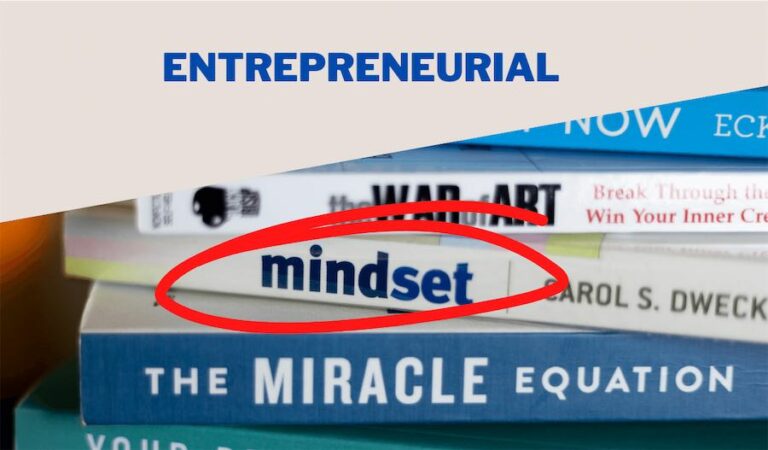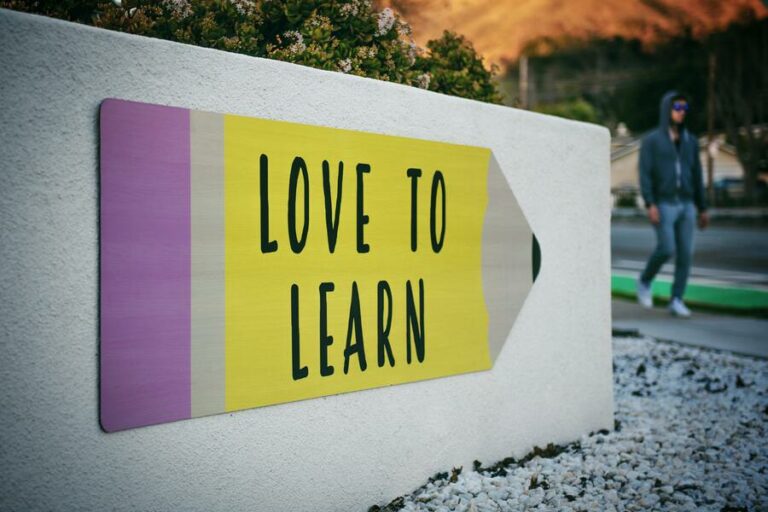Why mindset matters in business and in life
[Disclosure: this post may contain affiliate links, this means I get a commission if you decide to make a purchase through my links. This is at no cost to you. Please read my disclosure information for more details.]
Every motivational speaker or life coach might talk about ‘mindset’ every now and then. They fixate on this word more and more as they move towards proving their final point. But why is mindset so important, as if nothing else matters without it?
This article will take a deep look into what a mindset is, the types of mindsets, and how controlling your mindset can profoundly impact your life.
What Is a Mindset?
A mindset is the group of beliefs, perceptions, thoughts, and ideas an individual creates about themselves and the world. Every human being has a way of thinking about everything that goes around in our lives. Our actions are determined by what we believe is best for us at the time. This dictates our whole lives and determines the final goals we achieve.
Hence, mindset is something that you cannot possibly eliminate from your life. But it can determine the outcome of our actions, whether it be success or failure. But how does mindset become so vital for everything we do and achieve?
Carol Dweck, a Stanford psychologist, describes this as the beliefs that we hold are the most essential part of our actions, as they predict the chances of our success. He says that mindset determines how you curate your actions around a situation, which determines your success.
Mindsets are the reason why a person behaves in a particular way in a given condition. Therefore, our brain has a unique way of working, contemplating, and exercising particular actions for a given circumstance. Hence, your mindset is what you have trained your brain to think about a given input: life itself.
Types of Mindsets
Carol Dweck has done a lot of research on this aspect and has categorized basic human mindset into two categories. According to her, there is a growth mindset and a fixed mindset. Let’s see how she elaborates on these two:
Fixed Mindset
Dweck explains a fixed mindset as the ability of someone to think their notions and abilities are preconceived, generic, and built-in. This means that you will believe everything you do is because of your limited talents. Therefore, everything you do is based on limited intelligence, as you are born with it.
Hence, if you are one of those people, you will spend more time documenting your talents than developing more. People with a fixed mindset think they have a certain intelligence level and can’t achieve more. Therefore, they put in less effort and rely solely on their talents, which doesn’t help in every situation.
The characteristics of a fixed mindset are:
- I can’t change who I am
- Either I can do it or I can’t; there is no trying
- If I need to work hard, I don’t deserve it
- If I try, I will fail
Growth Mindset
A growth mindset is the polar opposite of a fixed mindset. Those with this mindset believe they are not limited by anything in terms of their perceptions, abilities, or talents. They firmly believe everything can be developed and bettered over time with effort and dedication. Therefore, you can be anyone and anything if you put in the hours to bring the change you desire.
This mindset does not make you delusional and makes you think that you can be like Newton, Leonardo da Vinci or any other great mind you may think of. These people are realistic in their perceptions and goal-setting. But they have deterministic thinking, through which they improve their skills and expand their intelligence.
According to Dweck, people with a growth mindset believe they can develop and upgrade their basic qualities through hard work and dedication. Therefore, intelligence and talent are arbitrary things exclusive to no one. Learning is a continuous process, which, when coupled with resilience, can help anyone achieve great things. Hence, a great learner is not born but made.
The characteristics of a growth mindset are:
- I can learn to do anything and be anyone
- I can achieve anything if I continuously work hard
- The more challenges I face, the smarter I become
- I will challenge myself to test my limits
How a Certain Mindset Makes an Impact
When growing as a child, we don’t have a mindset of our own. All we have are senses that help us navigate and perceive the physical events of life. We don’t have a definite clue about how to react in a certain situation. This is when our parents or guardians pitch in and help us learn to differentiate right from wrong.
This is what we call upbringing, which makes the foundation of our early mindset. Our brain starts to grow on the parameters our parents have drawn. Once our brains are fully developed, and we have the freedom to make our own decisions, this is when a mindset helps us grow and succeed.
A child with a growth mindset will always want to discover more. Either they will keep playing with the same toy repeatedly or want more interesting toys to know what more they can enjoy. This is what gradually translates into their future interests and achievements.
If your parents have the same mindset, they won’t scold you for your failures. They might try to take something away from you to protect you. But they will always set you up for a better effort the next time you try the same thing.
On the flip side, if you are brought up in an environment where experiencing new things is considered frightening or taboo, you might never imagine what could be on the other side. Some might call it simplicity, but most people are lazy or scared to leap into faith. Instead, you will try to justify yourself as perfect just as you are without ever achieving anything big. These people are urged to prove themselves right without wanting to learn or change anything new.
Those with a fixed mindset always find the easiest way out to avoid failure. The mere thought of failing is inconceivable and abhorrent for them. And when they fail, they consider it an act of faith and make peace with it. They do it without ever wondering what could have changed their outcome.
The growth mindset, on the other hand, always seeks out new opportunities. They won’t seek validation or ever try to justify their acts. As a result, they know that failure is an essential part of success.
How to Change a Fixed Mindset?
You are not born with a fixed mindset. No mindset is written on your DNA. Humans are evolved beings and are capable of changing their way of thinking. A growth mindset can help you to go a long way in life. Let us help you suggest a few steps you might be able to change your fixed tendencies.
- Learn to hear the voices in your head: When your mind tells you that you lack something or are stupid, you only need to shush it while trying more.
- Learn to ask for assistance: Asking for help doesn’t make you less competent or less talented. It only shows your curiosity and your desire to learn more.
- Find value in your journey to success: No journey comes without its learning. The journey is a compilation of lessons. The goal is your gift for what you learned.
- Learn to be patient with yourself: If you ever feel fed up with learning, just remember you will eventually get there.
Conclusion
No one is born with one single mindset, and no one mindset can guarantee a healthy, happy, long life. A fixed-mindset person might appear a coward, but bravery isn’t always smart either. Sometimes, knowing and not knowing can both have positive outcomes. But it is never bad to have a little courage and curiosity. You never know where it might lead.







